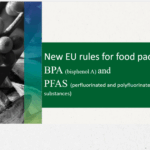- 04/12/2024
- Posted by: Sandra Borma
- Category: News

The FFM+ programme is running at full speed on the ground: 17 OACPS member countries were visited this month
The FFM+ programme is running at full speed on the ground, with 17 OACPS member countries visited this month.
In total, COLEAD has received almost 1,100 applications for support and has implemented more than 500 development projects since the launch of the FFM+ programme. In November, COLEAD carried out technical missions in 17 countries as part of the FFM+ programme. This illustrates the life cycle of the programme, which has reached maturity and full capacity two and a half years after its operational launch.
For information and illustration, here are some highlights of the FFM+ technical missions in November. As a reminder, the main objective of these missions is to meet potential or existing beneficiary partners of ongoing programmes (in this case FFM+). It is also an opportunity to meet other development practitioners in the country, as well as the relevant national authorities and the EU Delegation or other donors, in order to promote synergies and complementarity.
PACIFIC
Fiji:
Most of the companies met are involved in the production, processing and export of ginger, turmeric and vanilla. The trade association Fiji Crops and Livestock Council has submitted an initial application for FFM+ support. This national umbrella organisation for Fiji’s non-sugar agricultural sector represents 60,000 farmers. It covers sectors such as pigs, honey, ginger, cocoa, fruit and vegetables. The FCLC operates on three pillars: (i) strengthening associations, (ii) providing technical services to make farming profitable, and (iii) advocacy.
There has also been a request for a market study on ginger. COLEAD plans to follow up on this request under FFM+, with results expected in the first half of 2025.
The European Union Delegation to the Pacific, based in Fiji, was briefed on the mission and its objectives. The FFM+ and AGRINFO programmes were presented, as well as COLEAD’s online resources. EU funded projects in the Pacific, including SAFE and SPIRIT, were also discussed. It was agreed that further exchanges should take place with the organisations implementing these projects: the South Pacific Community (SPC – Land Resources Division) and the Pacific Islands Forum Secretariat (PIFS). The aim is to explore opportunities for co-operation between these projects and COLEAD programmes, and to publish a quarterly report on EU regulations affecting agri-food products exported from the Pacific to the EU. This “Pacific Digest” under the AGRINFO programme could be an interesting addition to the fortnightly AGRINFO newsletter.
The Pacific Farmers Organisation (PFO), based in Fiji, was visited. PFO’s mission is to make Pacific Island farmers’ organisations more dynamic, viable and sustainable. Farmers’ organisations play a critical role in improving the livelihoods of rural households throughout the Pacific Islands region.
Finally, the collaboration with the Pacific Plant Protection Organisation (PPPO) should facilitate the development of links with other NPPOs in the Pacific ACP countries. The PPPO is a regional plant protection organisation recognised by the International Plant Protection Convention (IPPC) and hosted by the SPC – LRD. The PPPO coordinates the harmonisation of phytosanitary measures and promotes cooperation on phytosanitary matters among its members, which include all member countries of the Pacific Community.
Solomon Islands:
Coconut is an important crop in the Solomon Islands, where it is processed into oil and exported. Meetings and exchanges were held on market access for this value-added production. In particular, the mission met with a coconut processing company (certified organic virgin coconut) supplied by more than 1,000 farmers. The company is also involved in the cocoa value chain and exports its processed products to Australia and the EU.
PFO facilitated a meeting with one of its members, which promotes organic production and represents over 7,000 farmers involved in value chains such as breadfruit, ngali nuts (the local name for Canarium indicum) and cassava.
The PHAMA Plus programme was also approached as it supports value chains such as coconut, cocoa, kava and timber. The PHAMA Plus programme aims to improve market access by strengthening biosecurity and compliance with international standards. Potential areas of collaboration with FFM+ have been identified, including capacity building for MSMEs, support for organic certification efforts and sharing of expertise networks.
Papua New Guinea:
The companies we met are mainly involved in the production and marketing of galip nuts, vanilla and coconut oil. Cocoa and coffee, which are also important value chains for the country, were the subject of many questions following changes in EU regulations on deforestation.
The Highlands Settlers and Farmers Association (HFSA), based in Goroka, was met to discuss potential support activities following their application for FFM+ support. HFSA members are involved in the production of crops such as onions and potatoes and their main role is to defend the agricultural sector.
The mission also met with the Fresh Produce Development Agency (FPDA), which acts as an intermediary for small producers. The FPDA supports smallholders in 65 fruit and vegetable sectors, focusing on onion and potato production to reduce imports. The mission finally met with the Daulo Commodities Cooperative Society (DCCS) in Goroka, which has submitted an application for support under the FFM+.
AFRICA
Cameroon: one of the objectives was to complete the analysis of applications for support from the DRCQ (Direction de la Réglementation of the Ministry of Agriculture and Rural Development) and the CPAC (Comité Inter-Etats des Pesticides de l’Afrique Centrale). The aim was also to monitor the support activities organised with these partners under the FFM+ programme, assess their impact and plan future actions. At the same time, the mission met with some twenty economic operators to analyse the requests for assistance received and to make proposals for action plans. Existing action plans were also discussed in individual meetings. The COLEAD experts and trainers based in Cameroon were the subject of specific meetings to gain a better understanding of the different types of expertise available in the country and to take stock of the activities carried out, those in progress and those to be carried out.
Côte d’Ivoire: The EU-funded PASA – Programme d’Appui à la Sécurité des Aliments pour la République de Côte d’Ivoire (PASA-Côte d’Ivoire) project should be implemented in part by COLEAD. Three other organisations will be involved in the EU-funded programme to support a sustainable agricultural system in Côte d’Ivoire: CARE, AGRI SUD and LADY AGRI. COLEAD will seek to ensure that the results of the FFM programmes benefit these 4 new national programmes.
The Gambia: On 27 November, COLEAD and the European Union Delegation organised a participatory workshop in Banjul attended by some fifty participants representing the private and public sectors and development practitioners involved in the country’s agri-food sector. The workshop was held in preparation for the launch of an ambitious EU-funded programme to be launched in 2025, entitled “Accelerating the sustainable and inclusive transformation of agri-food systems in The Gambia”. The workshop provided an opportunity to put into perspective what still needs to be done to confirm the agricultural value chains that will be targeted. It is expected that the achievements and results of the FFM+ programme will be used and promoted through this new national programme.
Togo: Meetings were held with FFM+ partner beneficiaries, mainly from the public services (Direction de la protection des végétaux (DPV) and Institut de conseil et d’appui technique (ICAT)). A specific meeting was held with the partner GIZ to promote synergies and complementarities between its activities and those of COLEAD through FFM+.
Tanzania: The value chains that have received the most applications for support in the country under FFM+ are herbs, avocado and pulses. The mission was able to assess needs and design projects from the 51 applications for support received, while identifying synergies with other programmes.
Uganda: An important aspect of COLEAD’s work in Uganda through FFM+ is its partnership with the National Plant Protection Organisation (NPPO) and the Department of Crop Inspection and Certification (DCIC) of the Ministry of Agriculture. COLEAD’s involvement in the Phytosanitary Capacity Evaluation (PCE) process is crucial given Uganda’s difficulties with sanitary and phytosanitary (SPS) checks on exports to the EU. Uganda is in the process of completing its PCE, the results of which are expected by the end of 2024, and COLEAD is actively contributing to this assessment to address the gaps in the country’s SPS systems. The mission also focused on strengthening partnerships with associations such as Hortifresh and the National Organic Agricultural Movement of Uganda (NOGAMU), both of which are key to promoting market access and competitiveness within Uganda’s horticultural value chains.
Sierra Leone: The priority areas for capacity building identified by partner beneficiaries are market access, sustainable practices and strengthening SPS (sanitary and phytosanitary) systems. Companies are making progress on food safety, but need additional support to meet international standards and strengthen environmental practices (e.g. waste and water management). The main products concerned are cassava, cassava flour, coconut oil, rice and chillies.
Zimbabwe: The COLEAD team highlighted to the DUE the large number of applications received from the country and provided clarification on the multi-country scope of the FFM+ programme and the potential challenges in covering all the applications received, highlighting the importance to the DUE of having a dedicated programme for the horticulture sector in the country from 2025 onwards. Local universities and the Ministry of Education were approached to leverage the impact of COLEAD’s digital vocational training toolkit. 16 MSME benefiting from FFM+ have been met.
CARIBBEAN
The technical mission is ongoing. The countries concerned are Suriname (11 requests for FFM+ support), Trinidad and Tobago (22), Jamaica (7), Guyana (3) and Barbados (1).
The mission is therefore an opportunity to engage with new, former and current partner beneficiaries in the five countries visited, and to hear the views of stakeholders on the challenges and opportunities in the sector. For some of the new FFM+ applicants, the site visits provide an opportunity to better assess support needs, to present COLEAD’s Sustainability Self-Assessment (SAS) system for private sector companies, and to start designing development projects.
Planned meetings with local institutions, including relevant national and regional authorities, as well as organisations such as horticultural and agri-food producer organisations and farmers’ associations, could lead to partnerships that not only offer direct benefits, but also enable the dissemination of essential technical information through established networks. Efforts will also be made to seek partnerships with bodies such as CARICOM and other relevant regional organisations to identify potential synergies in support of the horticultural and wider agri-food sector.
This activity is supported by the Fit For Market Plus (FFM+) programme, implemented by COLEAD within the Framework of Development Cooperation between the Organisation of African, Caribbean and Pacific States (OACPS) and the European Union. This publication receives financial support from the European Union and the OACPS. The content of this publication is the sole responsibility of COLEAD and can in no way be taken to reflect the views of the European Union or the OACPS.





